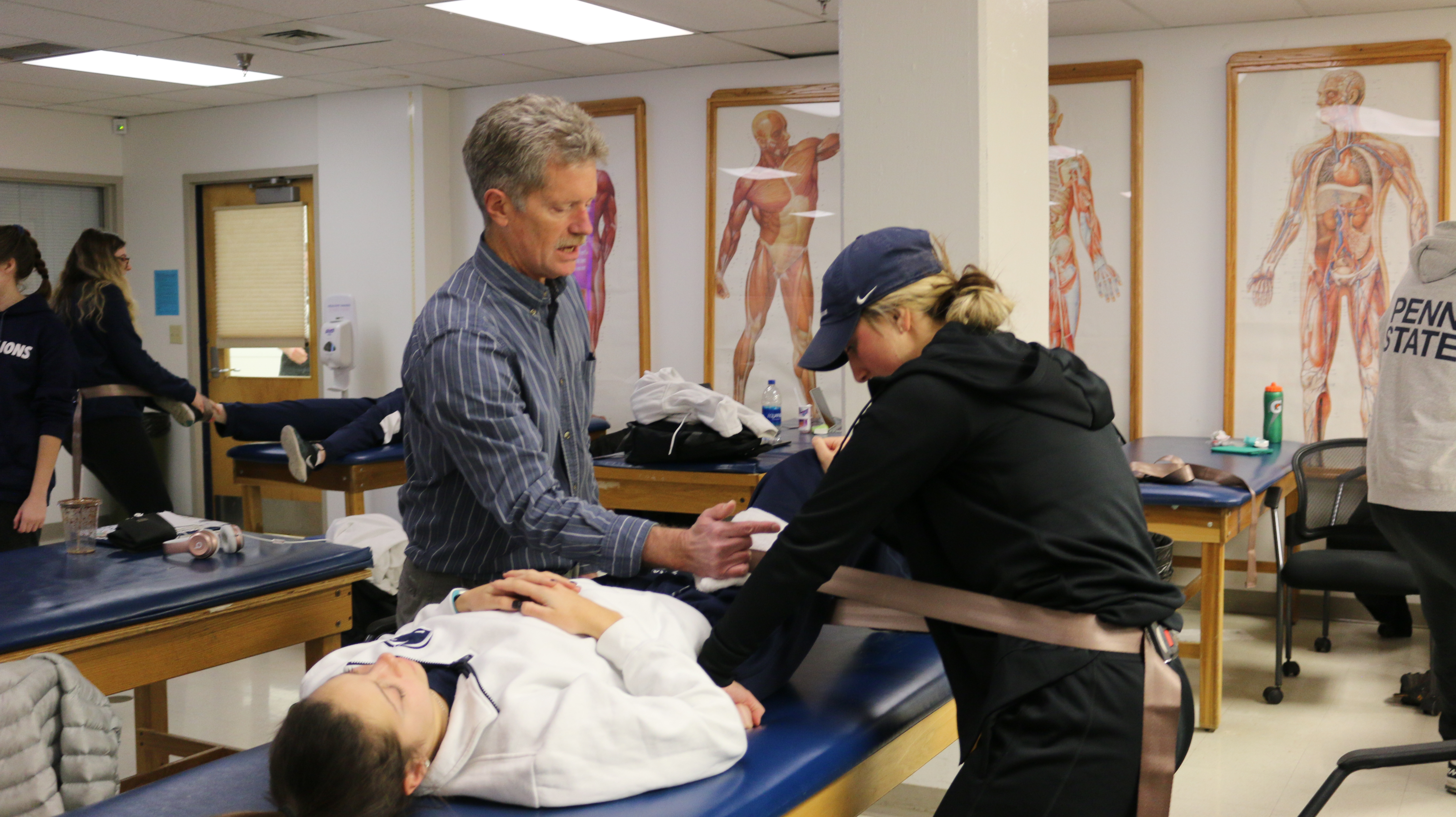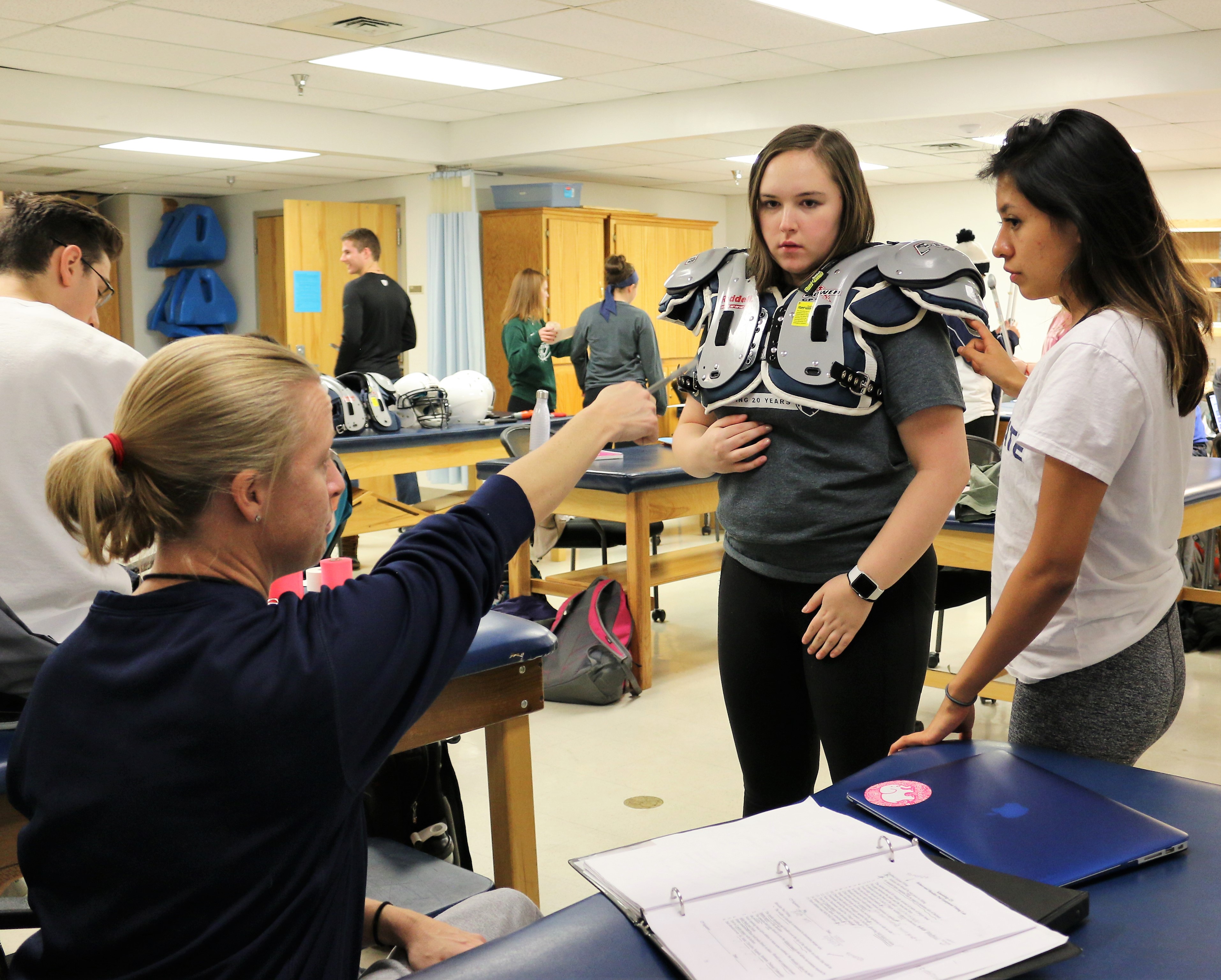-
About
Explore
-
Undergraduate
ExploreUp a level (this gets replaced in JS)
-
Getting Started
Explore
-
Future and Current Students
Explore
-
Get Connected
Explore
-
Get Involved
Explore
-
Diversity and Inclusion
Explore
-
Academic Advising
Explore
- Visit and Apply
- Student Profiles
- Donate
-
Getting Started
-
Graduate
Explore
-
Research
Explore
-
Alumni
ExploreUp a level (this gets replaced in JS)
-
Get Involved
Explore
-
Achievements
Explore
- Contact
- KINES News
- Donate to KINES
- Update Your Contact Information
-
Get Involved
-
Outreach & Service
Explore
-
Contact
Explore
-
Departments
Explore
-
Research Centers
Explore
-
Central Administration
Explore
-
Training and Support
Explore
- Contacts/Directory
Search 
Mission, Vision, and Goal Statements
Undergraduate Athletic Training program transitioning to Graduate level
In response to the "AT Strategic Alliance Degree Statement," Penn State closed enrollment to the Bachelor of Science in Athletic Training curriculum in Spring Semester 2021. Students seeking to earn an entry-level degree from the University may now do so through the new Master of Athletic Training program.
Mission
The mission of The Pennsylvania State University (Penn State) Athletic Training major is to prepare students to become entry-level athletic trainers who base interventions on scientific and clinical evidence in the promotion of optimal wellbeing of physically active populations while serving as competent and compassionate practitioners, advocates, leaders, and educators in health care.

Vision
The program is committed to an ongoing evaluation of the curriculum, and staying current in the athletic training profession to ensure that students receive the highest quality education possible; the Department of Kinesiology aspires to be an enduring steward in athletic training education, recognized through distinction in both scholarship and service.

Goals
- The Department of Kinesiology is committed to providing high quality didactic instruction and clinical education experiences so that students are equipped for success on the national Board of Certification (BOC) examination in order to become eligible for State/Commonwealth credentialing as an athletic trainer.
- The Athletic Training major aims to meet or exceed standards established by the Commission on Accreditation of Athletic Training Education, related Athletic Training Education Competencies, and the BOC Role Delineation Study/Practice Analysis.
- The program aims to cultivate an environment that encourages and facilitates student academic excellence, social responsibility, and cultural sensitivity. Faculty, staff, and preceptors strive to accomplish this by implementing innovative approaches in the development and delivery of the curriculum that incorporate integrative exposures to contemporary evidence and professional ethics that underpin clinical practice to enhance patient/client welfare.
- The curricular framework seeks to enrich student learning through a variety of independent and collaborative critical decision-making experiences in diverse settings that challenge students to acquire, refine, and master their theoretical knowledge, clinical skills, and professional attitudes over time.
